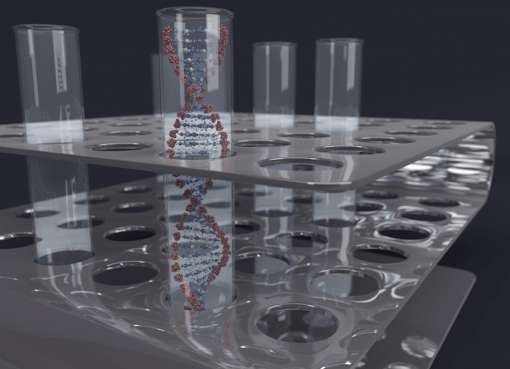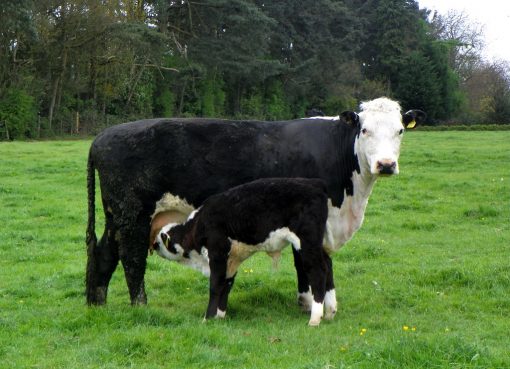Aditya Bharthdwaj1, Debashish Dev Choudhury1, Reeha Khawas Bhujel1,
Dr. Prerona Patowary2
1College of Veterinary Science, AAU, Khanapara, Guwahati-781022
2Assam Agricultural University- Goat Research Station, Burnihat-781023
Introduction:
Nematodiasis, caused by parasitic nematodes, is a significant health concern for small ruminants, such as sheep and goats, worldwide. Parasites like Haemonchus contortus, Trichostrongylus species, and Ostertagia species thrive in the digestive system of these animals, leading to various health problems ranging from mild weight loss to severe conditions like anaemia, infertility, and even death. The economic burden of nematodiasis is considerable, as it reduces productivity, increases veterinary expenses, and can lead to livestock losses. Traditionally, controlling nematodiasis has relied on regular deworming with anthelmintics. However, the growing issue of anthelmintic resistance has significantly reduced the effectiveness of this method. As a result, there is increasing interest in alternative control measures, with nutritional manipulation emerging as a promising strategy. This approach aims to enhance the host’s immune response, boost resistance to parasitic infections, and reduce dependency on chemical treatments.
Nutritional strategies to combat nematodiasis: Effective nutritional strategies can help modulate the health and immune status of the host, thereby reducing the impact of parasitic infections. The key nutritional interventions include:
- Protein and energy nutrition: Protein and energy are essential for immune function, growth, and development. Inadequate protein intake, particularly in young animals or lactating females, can weaken the immune response, making the host more vulnerable to infections. Ensuring sufficient protein intake can enhance immune function and help animals resist parasitic infections. Additionally, high-energy diets can support growth, allowing animals to recover from the damage caused by nematode infestations.
- Micronutrients and immunity: Micronutrients such as zinc, selenium, copper, and vitamin A play critical roles in immune function and the body’s ability to mount an effective defense against parasitic infections. Zinc, for example, helps boost immune cell production, while selenium’s antioxidant properties help reduce the damage caused by parasitic infestations. Ensuring adequate intake of these micronutrients through supplementation or balanced forage can significantly improve a ruminant’s ability to resist nematodiasis.
- Forage quality: The quality of forage available to small ruminants plays a crucial role in their ability to resist parasites. High-quality forage, rich in fiber and nutrients, supports gut health and enhances overall resistance to infections. In contrast, poor-quality pasture can weaken the immune response, increasing the animal’s vulnerability to parasitic infestations. Therefore, managing pasture quality is an essential part of a nutritional strategy for controlling nematodiasis.
- Supplementation and special feeds: Nutrient supplementation can complement the host’s immune system. For example, providing protein supplements in grazing systems has been shown to reduce faecal egg counts of nematodes, decreasing both environmental contamination and parasite load in animals. Furthermore, feeding certain products containing tannins, found in various plant species, has demonstrated anthelmintic effects and can reduce nematode burdens.
- Grazing management and nutritional influences: Strategic grazing management, such as rotational grazing, can reduce small ruminants’ exposure to nematode larvae on pastures. Combined with nutritional strategies, rotational grazing allows animals to graze on pastures with lower parasite contamination, thereby reducing the need for chemical deworming treatments.
Nutritional manipulation mechanisms:
- Boosting host immunity: Nutritional manipulation can strengthen the host’s immune system through adequate protein, energy, and micronutrient intake. Well-fed animals tend to have robust immune systems capable of resisting parasitic infections. For instance, protein-rich diets can stimulate the production of immunoglobulins and other antibodies, while minerals such as zinc are vital for activating immune cells.
- Gut health and microbiota: The gastrointestinal tract of ruminants hosts a diverse microbiota that can influence parasite dynamics. Nutritional manipulation can improve the composition of this microbiota, making it less favorable to parasite survival and reproduction. The use of probiotics and prebiotics, along with a diet rich in fiber, can enhance gut health and, in turn, improve the animal’s ability to resist parasitic infections.
- Nutrients and parasitic growth and reproduction: Some nutrients directly affect nematode growth and reproduction. Diets high in protein, for example, have been shown to reduce the fecundity of Haemonchus contortus, thereby limiting their ability to produce offspring and infect the host. In contrast, poor nutrition weakens the immune status of animals, promoting parasite proliferation.
Integration with other control strategies: Nutritional manipulation can be combined with other control methods, such as rotational grazing, genetic resistance breeding, and the judicious use of anthelmintics. Integrating these strategies enhances their overall effectiveness while minimizing the development of resistance in parasite populations.
Challenges and limitations: While nutritional manipulation holds promise as a cost-effective and readily available alternative for enhancing productivity, it does face certain challenges. These include the high costs of supplementation, varying forage quality, and limited access to high-quality feeds, all of which can hinder widespread adoption. Educating farmers and increasing their awareness of these practices is essential for the successful implementation of nutritional strategies.
Conclusion: Nutritional manipulation is an alternative or complementary approach promising in the management of nematodiasis in small ruminants. Strategic nutritional interventions enhance the immune response, improve gut health, and decrease the parasitological viability of parasites, greatly reducing the impact of parasitic infection. Challenges faced in the use of nutritional intervention include high cost and practical implementation; however, continued research and education of farmers are likely to be keys to its successful introduction into sustainable control programs for these parasites. With increasing global concern about anthelmintic resistance, nutritional strategies are likely to gain importance in the control of nematodiasis and the enhancement of productivity and welfare of small ruminants.
Reference:
Larsen, M. (2000). Prospects for controlling animal parasitic nematodes by predacious micro fungi. Parasitology, 120: S121-31.
Shalaby, H.A. (2013). Anthelmintics resistance; How to overcome it? Iran J. Parasitol. 8: 18-32.




